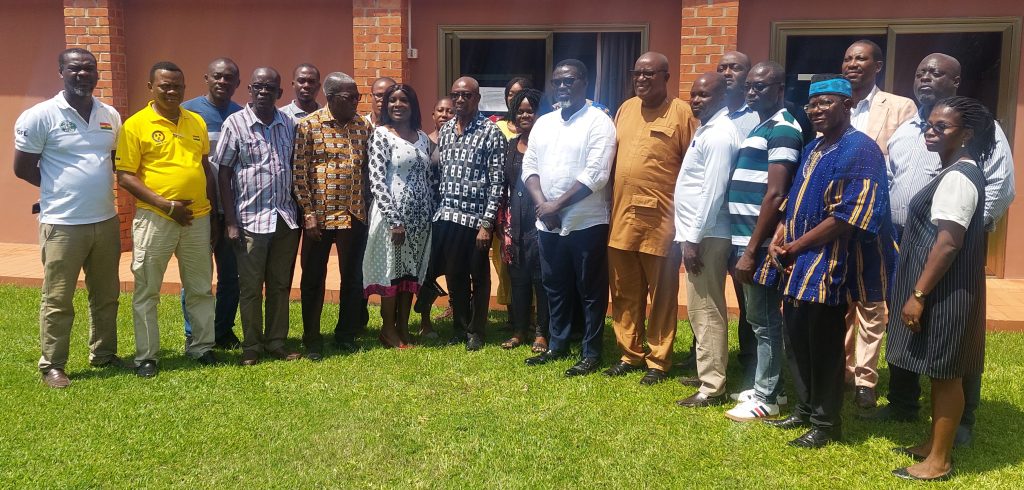By Laudia Sawer
Tema, Oct 14, GNA-The Ghana Federation of Labour (GFL) has called on labour unions in Ghana to turn their attention to the government and policymakers whose actions are affecting the economy negatively.
Mr Abraham Koomson, GFL Secretary General making the call at a two-day International Labour Organization’s (ILO) sponsored workshop in Tema, said the energy the labour unions direct to their employers should now be channelled towards the government as companies were collapsing due to unfavourable policies.
The theme for the workshop was: “Innovative Strategies for Organizing Workers in the New World of Work.”
Mr Koomson said, “the labour movement has a responsibility to compel the government to do the needful to create a congenial business environment for industries to thrive to be able to retain employees and expand.”
He said companies were faced with clear and pressing threats both globally and internally as a result of bad government economic policies and a lack of commitment to promoting the growth of local industries.
He added, that, painfully, Ghana witnessed redundancies in many companies which used the negative impact of the COVID-19 pandemic as an excuse to lay off workers.
Mr Koomson said eight years ago, the power crisis that hit the country virtually crippled the expansion of businesses, adding that the shocks, high cost of production, unfair competition from cheaper imports and smuggling slowed down expansion and, in some cases, led to abuse of some workers.
He said though that was resolved by the close of 2016 with assurances of excess capacity to attract investments for growth and its associated guarantees for more jobs, Ghana was slapped again with another disturbing crisis.
“Trade Unions have made their stance clear against any IMF policy, but it is now obvious we have no alternative especially because of the alarming debt to GDP ratio which Bloomberg has projected to hit 84.6 per cent by the end of this year, with total national debt surpassing GH¢400 billion even before December 2022,” he said.
He added that “the state of the country’s economy today is even worse than anticipated following the junk status rating by Fitch amidst concerns about debt sustainability as the government negotiates with IMF.”

The Secretary-General said the GFL’s membership has declined by 45 per cent representing affiliates from both the formal and informal economy, particularly the Textile and manufacturing industries.
He explained that there was a direct correlation between happenings in the country to industry, access to capital, cost of production, purchasing power, profit, job sustainability, the possibility for expansion, and new opportunities for the unemployed youth.
Madam Inviolata Chinyangarara, the Senior Technical Specialist, ILO ACTRAV (Bureau for Worker Activities), in a goodwill message said the workshop was important and timely due to many reasons facing union activities.
Madam Chinyangarara said in many African countries, trade unions were losing members, strength, and influence as they were faced with challenges including declining trade union density.
She said weakening networks of trade union representatives, weakening links between workers and trade union structures, lack of young and women trade union activists, declining mobilising capacity and weakening social and political influence.
She added that the world of work is changing at a rapid pace, as there was the decline of jobs in manufacturing, the rise of non-standard and flexible work, persistence and growth of the informal economy, changes in employment regulations and the limitation and violation of trade union rights have caused unionization rates to fall in most countries worldwide.
She said increased precarious work and other forms of non-standard employment, as declining solidarity with vulnerable groups of workers such as migrants and workers in the informal economy were some of the factors to reckon with.
She said the digital economy and the way it was transforming jobs and employment relationships, and the social divide between workers with stable, paying jobs and workers with unstable, poorly paid, or precarious jobs, or no job at all has its effect on trade unionization.
She observed that the COVID-19 pandemic has added a new sense of urgency to the challenges facing workers’ organizations to respond to transformations in the world of work driven by globalization and by demographic, environmental and technological changes, as well as to play a crucial role in crisis mitigation, response, and recovery.
Madam Chinyangarara said for unions to contribute to building stronger, more sustainable, and equal economies and societies, workers’ organizations must continue to exercise leadership, demonstrate relevance, and provide quality services to their current and new members.
She stated that workers’ organizations also need to work with governments and employers’ organizations to develop a conducive environment for qualitative and meaningful social dialogue based on trust and respect for their rights and independence.
GNA